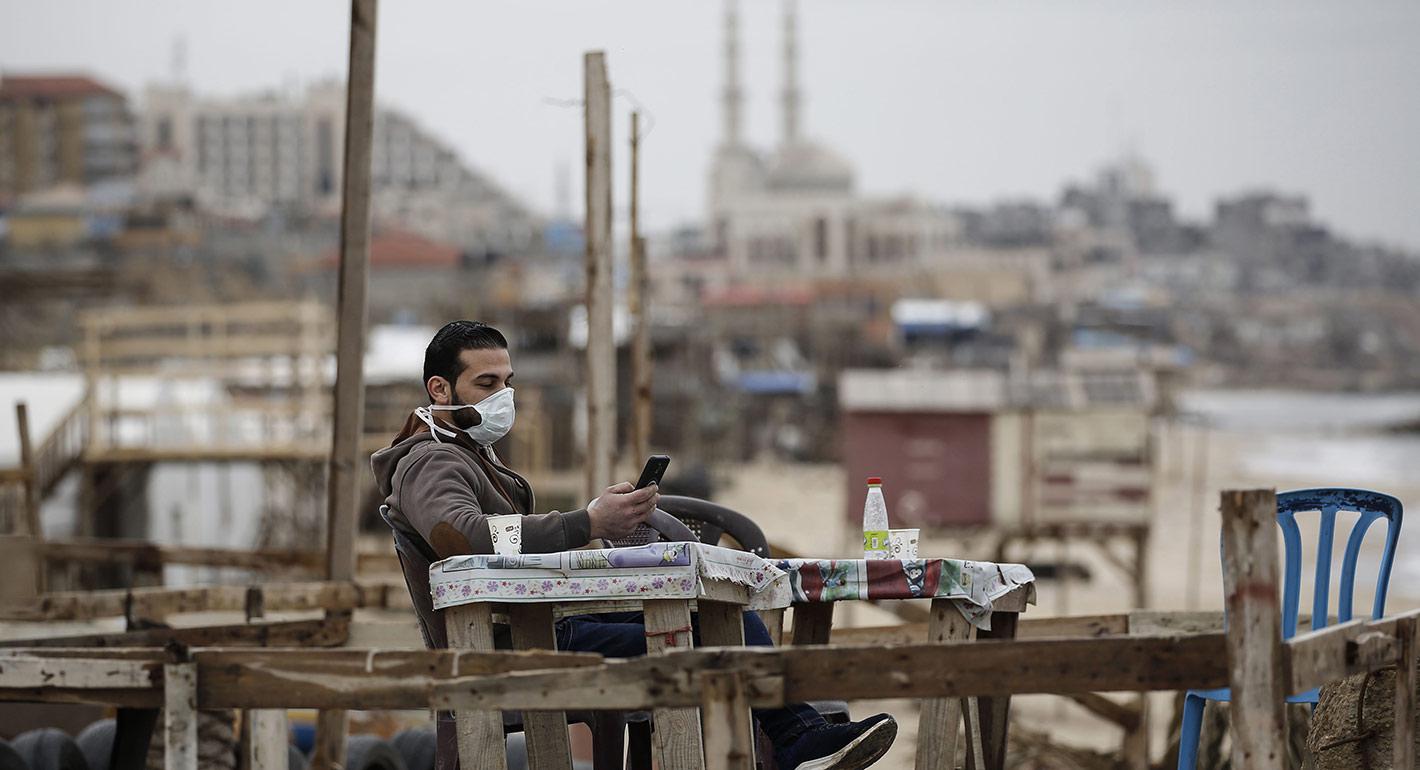Background
The two million Palestinians living in the Gaza Strip face insurmountable obstacles in attempting to prevent the novel coronavirus from spreading throughout the isolated enclave. Israel’s continued siege and blockade severely limits their ability to test for the virus and provide healthcare to those who become infected. Now with reports of the first two cases of the virus in Gaza this week, time is running out for Palestinian and Israeli authorities to prevent a catastrophe. The United States has an important role to play, leveraging its relationship with Israel to ensure that Gaza is able to respond to the pandemic.
Israel’s thirteen-year blockade and siege of Gaza decimated healthcare infrastructure and severely restricted access to health services. Suffocating under Israeli restrictions, Gaza’s failing economy has left healthcare systems in Gaza understaffed due to emigration of skilled doctors and subsequent restrictions on movement for health care workers. Such challenges are further compounded by Israeli-imposed customs limitations and its extensive “dual-use” list, which imposes broad restrictions on material imports because their potential military purposes, including those necessary for health care like nuclear scanning technology or materials used in prostheses. With inconsistent access to medical supplies and inadequate staffing, many patients are forced to seek healthcare elsewhere, which is contingent upon receiving an unlikely permit from Israel—in 2018, almost ⅖ of those permit applications were denied. With healthcare infrastructure that is thoroughly unprepared and unequipped to deal with a pandemic and restrictions preventing treatment elsewhere, an outbreak of the coronavirus will be disastrous for Palestinians in Gaza.
Refugees in Gaza, which make up 70 percent of Gaza’s population, face an added challenge: they rely on the United Nations Relief and Works Agency for Palestinian Refugees in the Near East (UNRWA) to provide primary care and screening for coronavirus. UNRWA has struggled to meet patient needs for years amid funding shortfalls and cuts in U.S. contributions to the agency under the administration of U.S. President Donald Trump. Those cuts have meant a loss of almost a third of its budget. UNRWA already halted food distribution temporarily in Gaza in an attempt to take the necessary precautions against the virus, but its ability to respond to the pandemic will depend on the success of a $14 million flash appeal for funding. Palestinians in densely populated Gaza are at a high risk for both contracting and transmitting the virus. The lack of access to clean water and sanitation in Gaza and the difficulty in practicing social distancing in the close quarters of camps could rapidly increase the virus’s rate of spread.
While responsibility for healthcare provision in the occupied Palestinian territories was transferred to the Palestinian Authority under the Oslo Accords, Israel holds the overarching responsibility to ensure access to quality healthcare as the occupying power under international law. But a global pandemic demands a global response, and the United States in particular holds some responsibility for the situation in Gaza given its political and military support to Israel amounting to $3.8 billion per year. Cuts in U.S. contributions to UNRWA and to Palestinians in the occupied territories have also contributed to the crisis Palestinians are facing.
Recommendations
The Trump administration and U.S. Congress must act now to do the following:
- Obligate funding, already appropriated by Congress through the State Department’s Migration and Refugee Assistance and Economic Support Fund accounts, to UNRWA at the previous level of $360 million so that it is adequately resourced to address the growing crisis.
- Ensure funding for UNRWA in the 2021 appropriations package so the agency can appropriately address the threat of coronavirus alongside the day-to-day health care needs of Palestinians in Gaza.
- Demand that Israel use the lump sum cash transfer of U.S. security assistance to Israel to support Gaza’s response to the coronavirus.
- Call on Israel to end the closure and blockade of Gaza and allow for humanitarian aid to enter unfettered.




.jpg)
.jpg)

